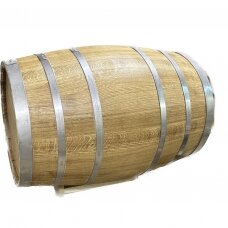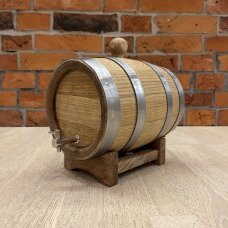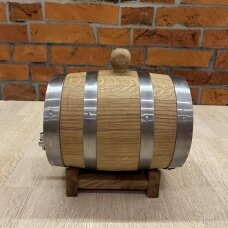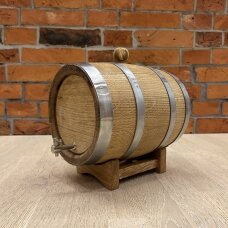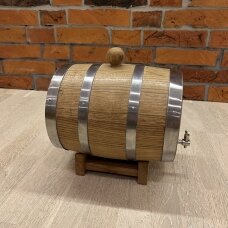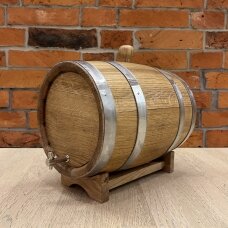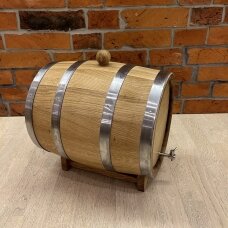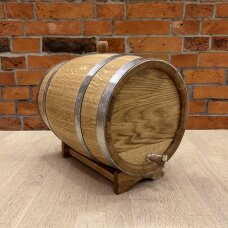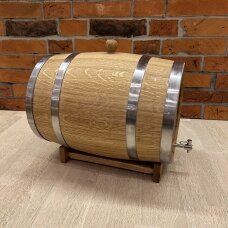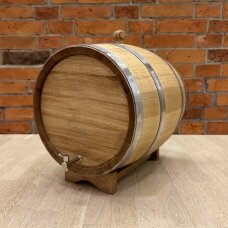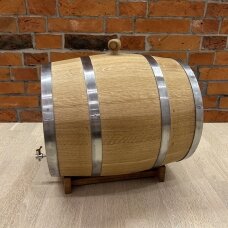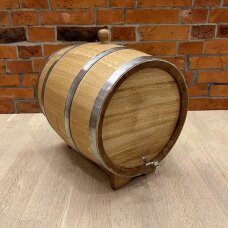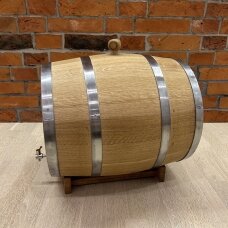All aspiring and professional brewers are well-aware of the fact that barrel-aged beer is both healthy and live. A long time ago, beer used to brewed in wooden barrels only and served directly from them. With time and the emergence of stainless steel left wooden barrels were forgotten for a while, but the revolution of home-brewed beer in the 1960s brought them back with more and more breweries choosing to age their beer in wooden barrels for exceptional flavours and character.
The barrel wood plays the main role in shaping the flavour, absorbed by your beer in process. Oak makes the most popular choice of wood, being both water resistant yet porous, enabling the beer to absorb some of the flavours, delivered by oak, such as vanilla, chocolate or coconut. This is the greatest advantage of ageing beer in oak barrels. The inside of the barrel is both charred and toasted, ranging from mild to very strong. The charring determines the intensiveness of the flavour, imparted by the barrel. Beer ageing may take from 6 months to one year. Different beers require different ageing terms in order to achieve the best flavour.
However, be careful to prevent any oxygen getting into the process. Excessive amounts of oxygen at the beginning of the brewing could leave you with a batch of mud-tasting beer. However, slow exposure to oxygen creates subtle flavours in aged beer. Aged in an oak barrel, beer is slowly saturated with oxygen, which gets into the barrel through the porous wood, bringing various different flavours with it. Slow oxidation can help enhance the beer’s bitterness and bring out other flavour notes.
The barrel wood contains lots of all kinds of bacteria and natural yeast, which enhance the beer as it ages. Although beer brewing requires lots of effort to prevent contamination with other bacteria, except for the beer yeast, barrel-aged beer benefits from the organisms that come into contact. The multitude of microflora that develop during barrel ageing can actually add new flavours and soften the overall flavour of the beer. A used barrel can also enhance your beer with flavours of whatever was kept in the barrel last, such as wine, whiskey, bourbon, etc.
It is usually recommended to drink the beer as soon as the process of brewing is over, because oxygen exposure can have a negative effect on its flavours. The success of a barrel-aged batch depends on the type of the beer. Beers with a higher alcohol content are more likely to acquire a more expressive taste as they mature. Stouts and porters are usually perceived as type of beer that are most suitable for ageing. However, these are not all. Sour beer ageing process produces probiotic lactobacilli, which create a strong fruity flavour. Wild fermentation beer is gaining popularity as well. This beer can be exposed to outside air during the ageing process. Sometimes this type of beer is classified as Lambic, originating from Belgium, or as American wild ale. What makes it different from sour beer is the unique yeasts, participating in the process of making.
Try ageing your beer in oak barrels to acquire more complex and unique flavours, thus testing out all of your brewing options. The ageing will only enrich your beer, making it unique.

